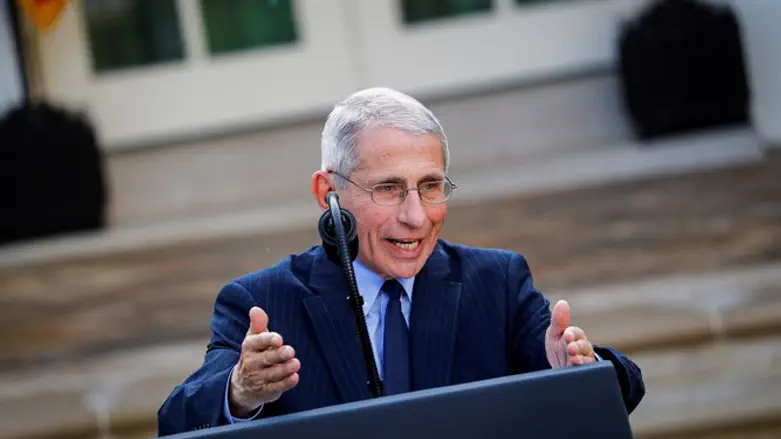
Trump administration health experts, including Anthony Fauci, warned Congress Tuesday that the United States faces "historic" challenges with the coronavirus and that Americans should brace for a lengthy battle against the pandemic.
Fauci, speaking following President Donald Trump's weekend comments that he had urged health officials to "slow the testing" for coronavirus, also insisted that the president never issued such an order.
"None of us have ever been told to slow down on testing," Fauci told a House panel on US efforts to mitigate the pandemic, according to AFP.
"In fact, we will be doing more testing" instead of less, he stressed.
Fauci, the government's top infectious disease expert, led a witness panel that stressed it was difficult to predict how long coronavirus will remain a threat.
"While it remains unclear how long the pandemic will last, COVID-19 activity will likely continue for some time," the experts said in prepared testimony attributed to all of them, inducing Fauci and Centers for Disease Control and Prevention (CDC) director Robert Redfield.
"These challenges are many, and they are historic," they said.
Fauci also said he feels "cautiously optimistic" about the pace of vaccine testing and reiterated his hope that broad production and use of a coronavirus vaccine could come by "the end of this calendar year" or early 2021.
The testimony came as Trump faced criticism for telling a Saturday campaign rally that he wanted to actually slow coronavirus testing.
White House aides said the president's remarks were tongue in cheek, but on Tuesday Trump doubled down.
"I don't kid," he told reporters before praising the US testing scheme, which Trump said has tested 25 million people, as the best in the world.
"By having more tests, we find more cases," Trump said, even suggesting the high number is a political liability for him during an election year.
"By having more cases, it sounds bad," he said. "But actually what it is, is we're finding people."
While former epicenters New York and New Jersey have succeeded in controlling their outbreaks, the virus is now increasing in 20 states including Florida, Texas and Arizona.
Last week, Fauci said the United States does not require more widespread lockdowns to get its COVID-19 outbreak under control.
"I don't think we're going to be talking about going back to lockdown," said Fauci when asked whether places like California and Texas that are seeing a surge in their caseload should reissue stay-at-home orders.
"I think we're going to be talking about trying to better control those areas of the country that seem to be having a surge of cases," he added.
